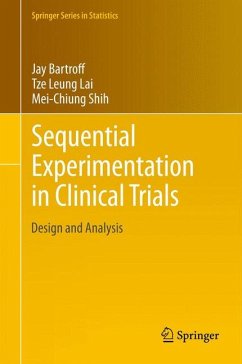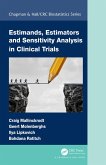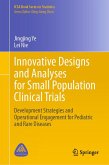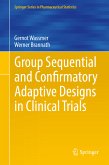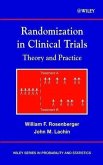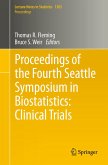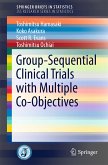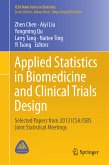This book presents an integrated methodology for sequential experimentation in clinical trials. The methodology allows sequential learning during the course of a trial to improve the efficiency of the trial design, which often lacks adequate information at the planning stage. Adaptation via sequential learning of unknown parameters is a central idea not only in adaptive designs of confirmatory clinical trials but also in the theory of optimal nonlinear experimental design, which the book covers as introductory material. Other introductory topics for which the book provides preparatory background include sequential testing theory, dynamic programming and stochastic optimization, survival analysis and resampling methods. In this way, the book gives a self-contained and thorough treatment of group sequential and adaptive designs, time-sequential trials with failure-time endpoints, and statistical inference at the conclusion of these trials. The book can be used for graduate courses insequential analysis, clinical trials, and biostatistics, and also for short courses on clinical trials at professional meetings. Each chapter ends with supplements for the reader to explore related concepts and methods, and problems which can be used for exercises in graduate courses. Jay Bartroff is Associate Professor of Mathematics at the University of Southern California where he is a member of the Laboratory of Applied Pharmacokinetics at the USC Keck School of Medicine. He is a leading expert on group sequential and multistage adaptive statistical procedures and their applications to clinical trial designs, and he is a sought-after consultant in academia and industry. Tze Leung Lai is Professor of Statistics, and by courtesy, of Health Research and Policy and of the Institute of Computational and Mathematical Engineering at Stanford University, where he is the Director of the Financial and Risk Modeling Institute and Co-director of the Biostatistics Core at the Stanford Cancer Institute and of the Center for Innovative Study Design at the School of Medicine. He made seminal contributions to sequential analysis, innovative clinical trial designs, adaptive methods, survival analysis, nonlinear and generalized mixed models, hybrid resampling methods, and received the Committee of Presidents of Statistical Societies (COPSS) Award in 1983. Mei-Chiung Shih is Assistant Professor of Biostatistics and a member of the Stanford Cancer Institute and of the Center for Innovative Study Design at the School of Medicine at Stanford University. She is also Associate Director for Scientific and Technical Operations at the Department of Veterans Affairs (VA) Cooperative Studies Program Coordinating Center at Palo Alto Health Care System. She is a leading expert on group sequential and adaptive designs and inference of clinical trials, longitudinal and survival data analysis, and has been leading the design, conduct and analysis of several large trials at the VA.
Dieser Download kann aus rechtlichen Gründen nur mit Rechnungsadresse in A, B, BG, CY, CZ, D, DK, EW, E, FIN, F, GR, HR, H, IRL, I, LT, L, LR, M, NL, PL, P, R, S, SLO, SK ausgeliefert werden.
"This outstanding book written by three prominent scholars present in depth sequential designs and analyses for different clinical trials. ... The book can also be used for short courses on clinical trials, translational medical research, and sequential experimentation by selecting the relevant parts of it." (Subir Ghosh, Technometrics, Vol. 56 (4), November, 2014)
"It is definitely a 'must read' for anyone doing research into the theory or methodology of modern sequential statistical analysis." (Bruce W. Turnbull, Mathematical Reviews, May, 2014)
"It is definitely a 'must read' for anyone doing research into the theory or methodology of modern sequential statistical analysis." (Bruce W. Turnbull, Mathematical Reviews, May, 2014)

